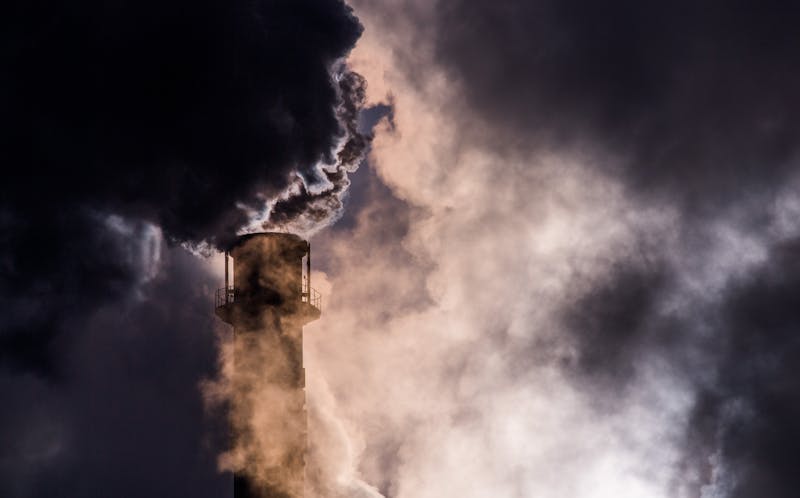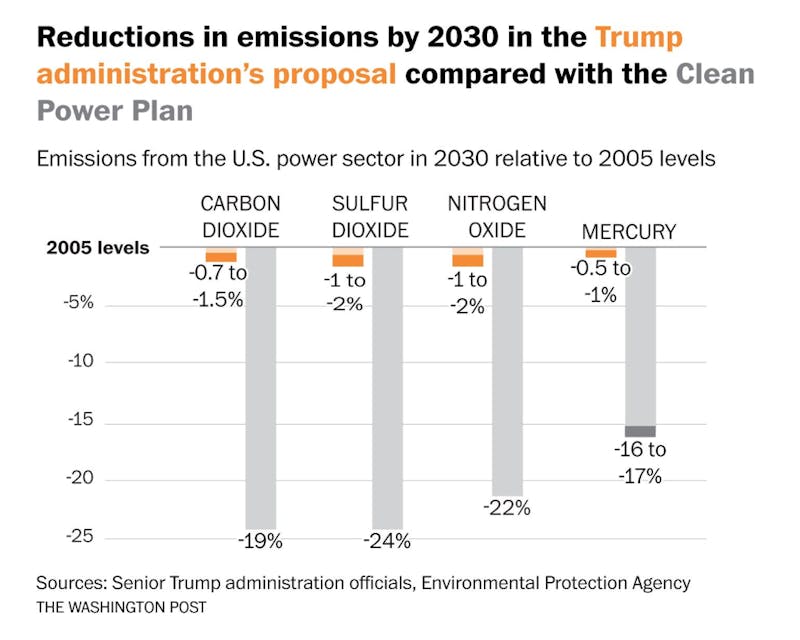
The National Oceanic and Atmospheric Administration on Monday released yet another dismal monthly report on the state of the global climate, concluding that last month was the fourth-hottest July ever recorded globally and that 2018 is shaping up to be the fourth-hottest year on record. The federal agency also found that sea ice levels in the Arctic and Antarctic were well below average. Nowhere in the world saw a single record cold temperature.
President Donald Trump is expected to unveil a plan that, if implemented, would warm the planet even further. Trump reportedly will travel to West Virginia on Tuesday to announce new greenhouse gas regulations for coal-fired power plants—effectively a proposed replacement of the Clean Power Plan, President Barack Obama’s signature policy to fight global warming. Trump’s plan “would allow individual states to decide how, or even whether, to curb carbon dioxide emissions from coal plants,” The New York Times reported. “The plan would also relax pollution rules for power plants that need upgrades. That, combined with allowing states to set their own rules, creates a serious risk that emissions, which had been falling, could start to rise again, according to environmentalists.
Compared to the Clean Power Plan, Trump’s plan effectively would add 300 million tons of greenhouse gases to the atmosphere—the equivalent of more than 64 million cars driven for a year. Or, as The Washington Post put it, Trump’s plan would “release at least 12 times the amount of carbon dioxide into the atmosphere compared with the Obama rule over the next decade.”

“These numbers tell the story, that they really remain committed not to do anything to address greenhouse gas emissions,” Joseph Goffman, an environmental law professor at Harvard, told the Post. In truth, these numbers tell only part of the story, as the Clean Power Plan is just one out of several climate change regulations Trump plans to undo. The cumulative impact of those repeals, if successful, would be far greater than adding 64 million cars to the road. It could be more like 340 million.
Obama implemented a regulation to limit leaks of methane—a powerful greenhouse gas—from oil and gas operations. Finalized in 2016, the rule was intended to prevent the equivalent of 11 million metric tons of carbon dioxide escaping into the air by the year 2025. The Trump administration has moved to repeal that rule without a weaker replacement. The courts will ultimately decide whether he succeeds, but if he does, it could result in two million cars’ worth of emissions added to the atmosphere.
But that’s nothing compared to the projected impact of Trump’s recently announced plan to repeal and replace Obama’s fuel efficiency rules for vehicles. From The New York Times (emphasis mine):
Assuming the plan is finalized and survives legal challenges, America’s cars and trucks would emit an extra 321 million to 931 million metric tons of carbon dioxide into the atmosphere between now and 2035 as a result of the weaker rules, according to an analysis by the research firm Rhodium Group. A separate estimate by the think tank Energy Innovation pegged the number even higher, at 1.25 billion metric tons.
In other words, Trump’s new fuel efficiency rule would have the same climate effect as putting 68 to 267 million cars on the road for a year. Add his Clean Power Plan replacement and methane rule repeal, and the effect would be an additional 140 to 339 million cars. That’s the same as adding 164 to 397 coal-fired power plants to the grid for a year.
Those emissions would only hasten the slow-motion catastrophe of climate change. National Geographic reported on Monday that some Arctic permafrost—which is supposed to be permanently frozen—is no longer freezing even in winter. Permafrost contains greenhouse gases, which get released into the atmosphere when it thaws. Those gases then cause more warming, which causes more permafrost thaw. “This is a significant milestone in a disturbing trend,” permafrost expert Ted Schuur told the magazine. It’s one of many disturbing climate trends that seem certain to continue under Trump.